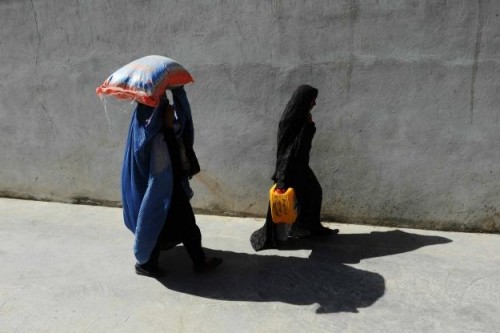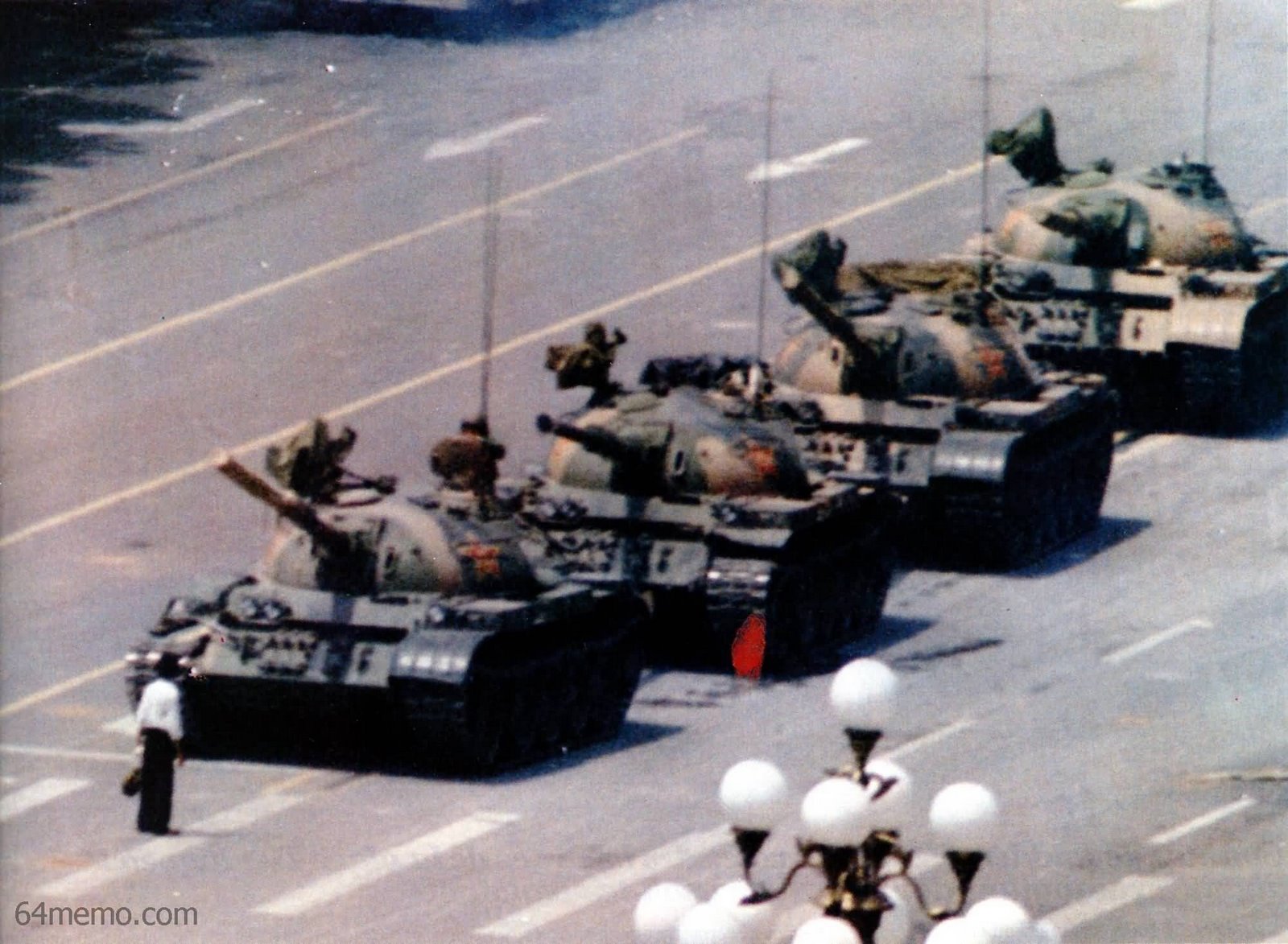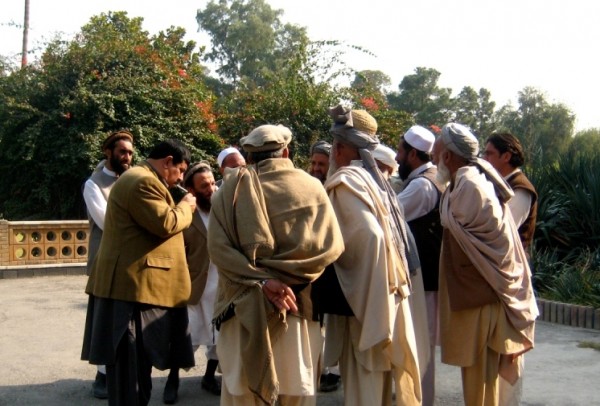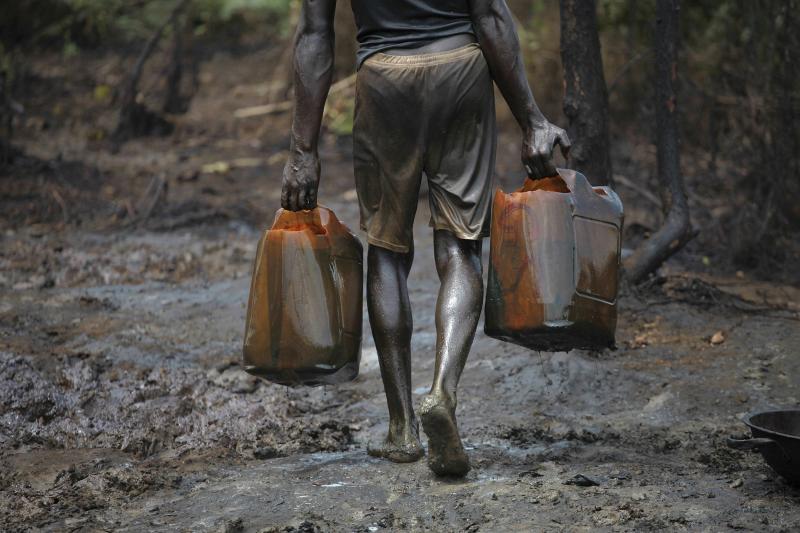
Stabilising provincial Afghanistan: How to get It right
Kabul’s ongoing presidential election negotiations aren’t the only dramatic transition underway in Afghanistan. The ambitious U.S.-led “surge” launched in 2009, which bolstered foreign troops mainly in southern and eastern Afghanistan, has given way to a drawdown, paralleling a major downsizing in the development sphere. Aid budgets are contracting, and provincial reconstruction teams (PRTs) and other subnational civil-military installations — long key international platforms to distribute aid and engage local politics outside Kabul — are closing down.
As the local-level foreign official presence phases out of more volatile and remote areas, how should donor assistance strategies adjust? A new paper from the U.S. Institute of Peace, which builds upon fieldwork from the past three years, argues that 2014 marks an important opportunity for donors to recalibrate three central tenets of their subnational governance and development strategy.
First, donors should revise their conceptions of assisting Afghan government “service delivery.” To be sure, delivering services seems commonsensical in a country that sorely lacks them, but PRT-based projects often confused their ambition to cultivate recurring services with their reality of launching a constellation of unsystematic and often one-time projects. The sheer numbers of foreign personnel and agencies operating at the subnational level — all responding to a higher-level focus on “burn rates” — further fueled the disparate character of aid distribution.

“When is Genocide Permissible?” Never.
Last week Yochanan Gordon posted a blog entry on The Times of Israel’s website entitled “When is Genocide Permissible?” The answer to this question so blatantly obvious that one has to wonder why the question was asked. Indeed, this inaugural post was almost one word long. However, I felt compelled to look at Mr. Gordon’s reasoning given that it has caused such outrage among people on both sides of the conflict. To borrow from J.S. Mill, doing otherwise makes dead dogma out of living truth (Mill, 37). Genocide is obviously evil, but the forensic examination of an argument with which we disagree is the best way to refute it and, hopefully, convince those who hold it to put it aside.

Travelling to the UK? On the Pain, Separation and Dehumanisation of Student Families from ‘High-Risk’ Countries
The violence and despair of the militarised and exclusionary immigration policies of ‘Fortress Europe’ have been well documented. Institutionalised racism combines with an openly hostile bureaucracy of ‘paper walls’. In the UK Home Office, officials are encouraged through a perk system that awards shopping vouchers to officials who decline the highest number of asylum applicants per month. In Fortress Europe: Dispatches from a Gated Continent, Matthew Carr (2012: 120) describes the immigration-media nexus in the UK as a ‘mutually reinforcing consensus between governments, the media and the public that invariably depicts immigration as an endless crisis [and undocumented migrants as] dangerous and dehumanised invaders massing outside the nation’s borders’

The Anniversary of Tiananmen
4 June 2014 marks the 25th anniversary of the quelling of the demonstrations in Tiananmen Square. The event was a near-death experience for the Chinese Communist Party, which turned its tanks on the workers and students in the centre of Beijing. Even today, the subject is taboo in China itself; the subject is never discussed, and when mentioned (rarely), it is captured in the vague term “turmoil.”
Yet the event still haunts China today. It haunts China’s reputation. Because the subject has never been discussed, debated, or mourned, it still stands as a central point in the critique of China’s government around the world. However much China’s economy grows, its education system changes, its international standing increases, the “memory hole” in the centre of its contemporary history remains and can always be brought up as a criticism – as long as China refuses to deal with this most traumatic event in its recent past, it cannot fully engage with a world where openness, transparency, and connection is so much more important than it was even in 1989.

Lessons from Afghanistan: Warlord politics aren’t always bad for democracy
“Without branding all generals and statesmen as murderers or thieves … a portrait of war makers and state makers as coercive and self-seeking entrepreneurs bears a far greater resemblance to the facts than do its chief alternatives: the idea of a social contract, the idea of an open market … the idea of a society whose shared norms and expectations call forth a certain kind of government.” Charles Tilly, 1985
As Afghanistan’s election season marches on, Charles Tilly’s unsavory portrait of statesmen as “coercive and self-seeking entrepreneurs” seems eerily resonant. Observers worry that despite record turnout by voters, the campaigns featured opportunistic deals between power brokers with checkered backgrounds and that those bargains will determine the election’s ultimate outcome. Indeed, over the past decade foreigners and Afghans alike have bemoaned the slippery and self-interested machinations of Afghanistan’s ruling class. The international community has invested a great deal to help the Afghan state move toward the ideals of good governance we associate with liberal democracy in the West. Why has progress been so halting?

Avoiding Africa’s oil curse
East Africa is the global oil and gas industry’s hottest frontier. Barely a month goes by, it seems, without a major discovery in Mozambique, Tanzania, Uganda, or the eastern Democratic Republic of the Congo.
This new African windfall is hardly without precedent. Several west and central African states — most notably Angola and Nigeria — have already experienced petroleum booms of their own. Over the last decade, they benefited from a spectacular jump in oil prices, which rose from $22 per barrel in 2003 to $147 per barrel in 2008 and remained high, for the most part, until recently. The spoils were enormous: from 2002 to 2012, Angola’s GDP jumped from $11 billion to $114 billion and Nigeria’s went from $59 billion to $243 billion.
The opportunity afforded by this extraordinary decade was unprecedented and is unlikely to recur. Sadly, however, decision-makers have mostly squandered it. If the new east African producers are not to repeat the mistakes of the established ones, then, they should heed the lessons of Africa’s last oil boom.
Algeria: Why Today’s Elections Are Essential
Since the partitioning of the Sudan, Algeria is the largest African country and a primary regional power in the Mediterranean region. Therefore, the condition of this North African pivot-state is essential for Europe: Algiers is the 3rd largest energy supplier to the EU, while its population of 38 million inhabitants, its anti-terrorism security expertise and the size of its armed forces (130,000 men) make their security capabilities necessary to the stability of the Sahel zone. Moreover, with a gross domestic product (GDP) of 208 million dollars in 2013, Algeria remains the largest regional economy. Algiers was the least affected by the wave of the Arab Spring despite negative societal indicators. This situation contrasts with that of Tunisia or Egypt, notably due to politics of large redistribution of riches gained from oil revenues, but also due to the people’s fear of a return to a decade of stagnation.
Nevertheless, the relative calm in this country during the last three years should not lead one to believe that the upcoming presidential election is not without high stakes. In fact, the trajectory of this powerful regional presence is uncertain for at least two reasons. First, the country’s socio-economic dynamic is worrisome. Second, the security dynamic is deteriorating given that Jihadist groups have found new resources. Thus, in the context of a tense regional framework, the Algerian situation is more important today than ever before.

Gaza is Israel’s Munich
In September 1938, European statesmen gathered in Munich for a fateful conference. Hitler wanted to annex the Sudetenland, a German-speaking region of Czechoslovakia; Britain and France, desperate to avoid war with Nazi Germany, caved in and granted the Führer’s request. It was hoped that Hitler’s appetite for territorial expansion would be sated: Neville Chamberlain, Britain’s prime minister, proclaimed that the concession had achieved “peace for our time“. Within a year, Hitler had invaded Poland and the Second World War had begun. The policy of appeasement, it appeared, had failed and forever would fail – or so it came to be thought.
As the twentieth century evolved, ‘appeasement’ evolved into a term of abuse that would automatically discredit the granting of concessions to satisfy an opponent. What had previously referred to the pacific settlement of disputes through pragmatic negotiation, argues historian David Dilks, “came to indicate something sinister, the granting from fear or cowardice of unwarranted concessions in order to buy temporary peace at someone else’s expense”. The spectre of Munich came to hang over every international crisis: the Korea, Vietnam, Falklands and Suez wars were all justified in terms of the inevitable failure of appeasement. Most recently, the willingness of the West to allow Crimea to fall to Russia has been denounced as ‘appeasement’, and it is common to hear the crisis spoken of as ‘Obama’s Munich‘.
The 2005 Gaza Disengagement was Israel’s Munich moment: in Israeli discourse, ‘Gaza’ is to ‘unilateral withdrawal’ what ‘Munich’ is to ‘appeasement’. Israel withdrew its army and 8,000 settlers from Gaza Strip; the power vacuum was soon filled by Hamas, and this densely populated coastal strip became a launching pad for thousands of rockets against Israeli civilian areas, provoking two mini-wars.









